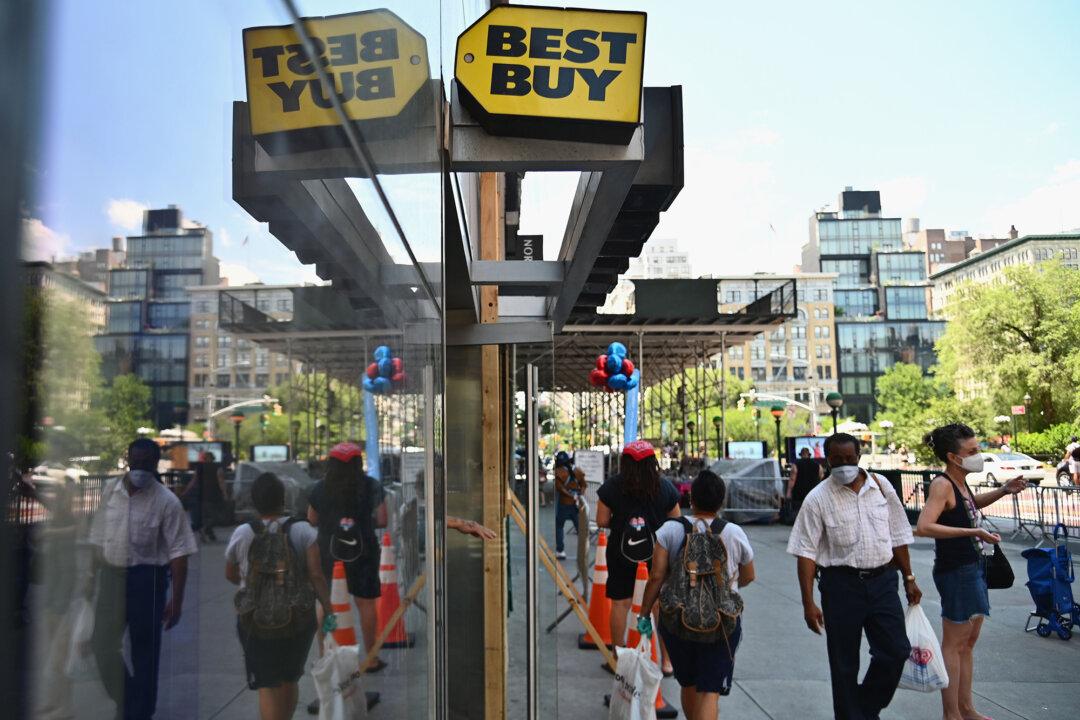Best Buy said Tuesday that it will require all shoppers coming into its stores to wear face masks.
It’s the latest mask mandate for customers announced by a major chain at a time when coronavirus cases across the country are continuing to rise.

Best Buy said Tuesday that it will require all shoppers coming into its stores to wear face masks.
It’s the latest mask mandate for customers announced by a major chain at a time when coronavirus cases across the country are continuing to rise.